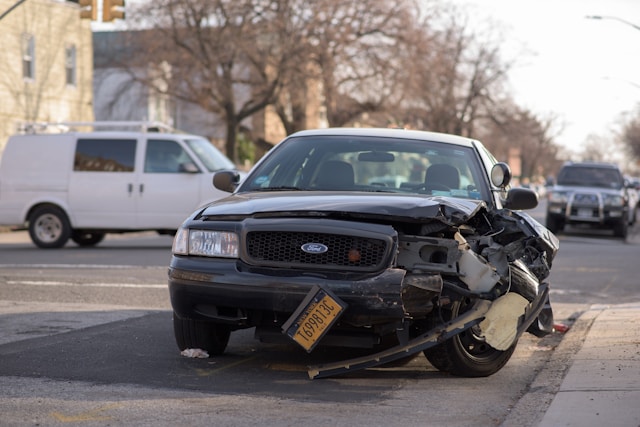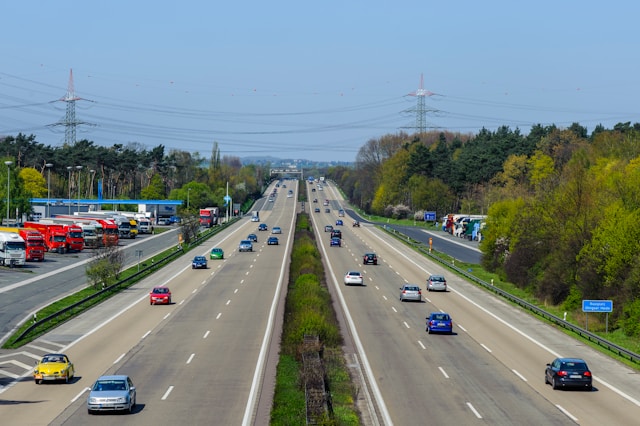Getting into a vehicle crash of any kind can be extremely traumatic. From a multi-vehicle pile-up to being rear-ended at the traffic lights, any level of vehicle incident can feel like your life has just flashed before your eyes and suddenly you’ve got a new appreciation for your existence.
Road accidents are common and it’s often down to luck when you’re driving. Unfortunately, not every driver out there is a good driver. So if you happen to be on the road as someone who isn’t copus mentos or is dangerous driving, you could find yourself in a dangerous situation.
According to recent statistics for 2023, there were an estimated 40,990 people who died in motor vehicle traffic crashes. Although that’s a lower percentage than the previous year, many people are losing their lives to something that could have been avoidable.
What to do immediately after the road accident
It’s important to know how to navigate the immediate aftermath of a road accident. In some cases, you might be in shock, and in others, you may be knocked out unconscious and/or faced with a number of injuries.
Whether you were driving alone or you had passengers in the car, there are a number of things worth doing and knowing about, should you find yourself in this position at any point. These include the following:
Check yourself and your passengers over for injuries
First and foremost, check yourself for any injuries. If you didn’t pass out from the road accident then chances are you’ll be a bit more aware of everything that’s going on in the moment. If you did pass out, then the risk of injury may have been higher.
If you have passengers in the car, it’s good to check on them too once you’ve checked yourself over. At this point, you might still be strapped into the car, so speaking to your passengers to check everyone is ok is the best way to get an immediate response.
Checking yourself and your passengers over for injuries is important before you attempt to move. You don’t want to try and move yourself if there’s a potential injury that you’re not aware of. This is particularly the case when you have injured passengers and you’re trying to remove them from the vehicle.
Call the authorities immediately
Whether it was an accident or not, it might be worthwhile calling the authorities. If the other driver had ill-intent in the damage they caused to your vehicle, perhaps as a result of road rage, then you should look at calling up the authorities immediately.
When the accident has caused extensive damage to your car and yourself, then you’ll want to call multiple authorities from the police to ambulance and fire services. Assess the situation immediately in the aftermath and call them even if you feel you might be wasting their time. With any sort of collision, it’s best to get everyone involved, checked out.
Move away from the vehicle or road you’re on if it’s dangerous
There might be situations where the collision has happened and it’s in an area that’s dangerous. For example, it could be that you had an accident on a main road where other cars are still racing past.
In this scenario, it’s better to be off the road, than on it, or in the vehicle itself. Moving away from the vehicle or road you’re on is essential. For the sake of your health and any existing injuries you might have, you’ll want to take yourself away from the danger zone.
Assess the situation but nine times out of ten, you’re likely to be in an area that’s dangerous and therefore needs to be evacuated by all those involved. You might also be near vehicles that are on fire or in danger of blowing up, so keep well away from the scene of the accident.
What to do when authorities arrive
Once you’ve done all of the above, you’ll likely be waiting for the authorities to arrive. With that being said, here are a few tips when it comes to navigating the situation once the police, ambulance, or fire services have arrived.
Recount the events to the authorities in as much detail as possible
First and foremost, you’ll want to make sure you’ve got details of the event as accurate as possible. This should also be something that your passengers will want to do too as they might be questioned on the events if there’s suspicion on either party or parties involved.
Recounting the events while they’re still fresh in your mind is crucial because even something as traumatic as a road accident can often lead to gaps in your memory.
You could always note down the details on your phone while you’re waiting for authorities to arrive.
Call a loved one for help
Depending on where you’ve had your road accident, you might want to contact a loved one to let them know you’re ok. In some situations, you might have a loved one who lives nearby and can come collect you or at least your passengers while you continue to sort out the problem at the accident site.
Calling loved ones can be good to do, especially when the road accident has been nearly fatal. It’s always comforting to hear the voice of a loved one when you’ve just had your life flash before your eyes or you’re at least feeling a little shaken up.
Find your insurance details
Your insurance details are worth having to hand in order to exchange for anyone else who’s been involved with the accident. At the very least, you should be looking to take down the car registration plates.
A road accident is always a reminder to have a look at your insurance provider to make sure that everything is as it should be in order to protect you and your vehicle. As well as your back pocket of course!
Book a vehicle collection service if needed
A vehicle collection service may be required if you cannot physically drive the vehicle to a nearby car shop. It might be that you have someone that you know locally or if you’re in the middle of nowhere in somewhere you’re not familiar with, then it might be worth checking online or from the authorities themselves.
For some insurance providers, they’ll have direct contact with a company available for the collection.

How to cope in the aftermath of a road accident
When it comes to the days or weeks following the road accident, there should be a number of things you do to check your own health and well-being. At the same time, you should consider the potential of a legal case if the accident wasn’t your fault or extreme recklessness was caused by other drivers.
Get checked over by the hospital or doctor
Firstly, make sure you’re checking in at the local hospital or with your doctor. You should get checked over by a healthcare professional for any signs of whiplash or broken bones.
One statistic by Forbes found that 1,593,390 crashes resulted in injuries, so even if you don’t feel you have any after the crash, those injuries might make themselves known in the following hours or days.
Speak to a personal injury attorney if there’s a possible case
Is there a case that Yakima personal injury attorneys could help with? Speaking to a personal injury attorney is a good idea if you feel like you have a case for the accident that happened.
Whether it was a fault with the vehicle you were driving that should have been fixed or reckless driving from other parties, speaking to a personal injury attorney is a good way to get the help and advice you need.
Who knows, you might come away with a great payout, which might be able to soften the blow of your vehicle being written off, or having to take time off work due to the injuries caused.
Process the accident for your mental health
A road accident is a scary ordeal and you might have been affected mentally by the event. It’s therefore important to process what happened and speak to someone you trust. You might be upset or feeling other emotions off the back of the accident that are best communicated with loved ones.

When it comes to navigating the mental trauma of an accident, it’s always best to try and seek professional help where it’s needed. While friends and family members may be able to help to a certain extent, not everyone has that help within their circles, nor does it do enough for their mental well-being.
If you need help to process the traumatic events, then you should get in touch with a professional. Navigating the physical and mental trauma of a road accident is a lot but hopefully this guide will help you, should you ever find yourself in the unfortunate situation where you get caught up in a road accident.
